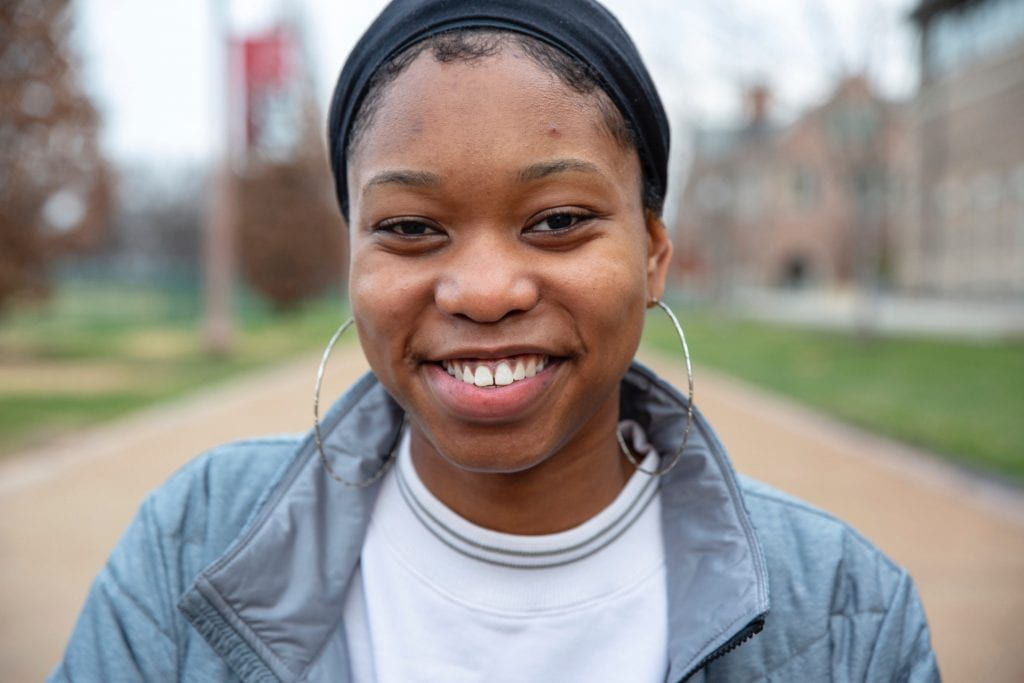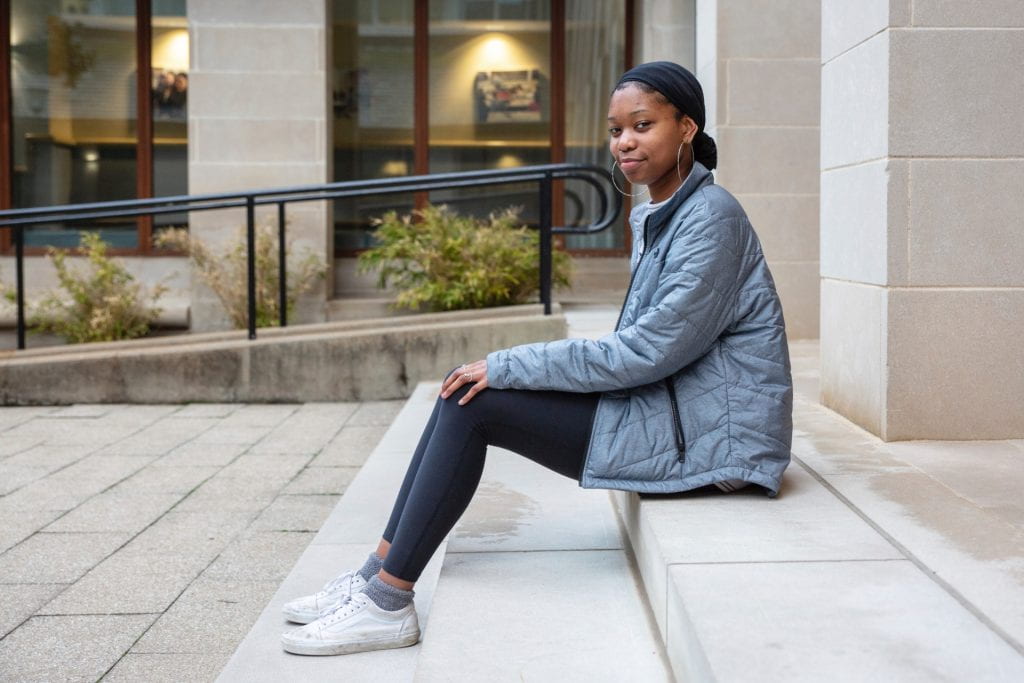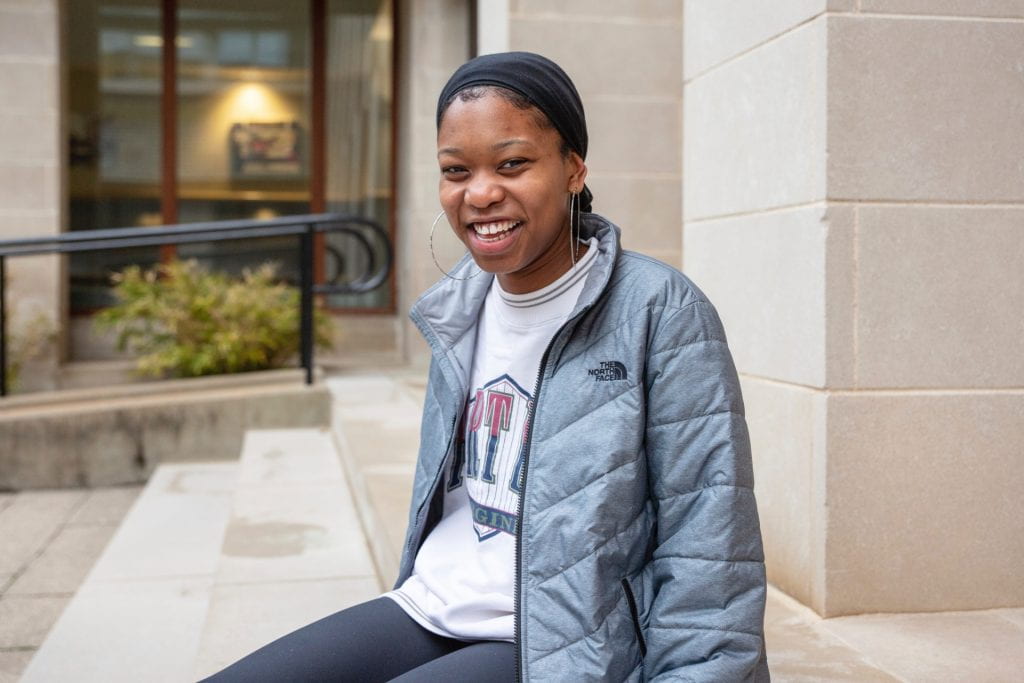
Over spring and summer 2019, Charlyn Moss, class of 2020, served as Program Chair (formerly Community Assistant) for Engage STL, an Immersive Experience program for first-year students centered around topics of community engagement; environmental sustainability; and diversity, equity and inclusion. Charlyn reflected on her experiences with Engage STL and civic engagement on campus, sharing her own learnings and advice. Interested in being a Program Director like Charlie? To apply or find out more information, check out the Campus Life WUGO page here.

“I didn’t get involved in the St. Louis community until the fall of my sophomore year. It took a while, but after that, it was just a steamroller. Sometimes I imagine what it would have been like if I had engaged my first semester. The thing that propelled me was surrounding myself with people who cared about St. Louis. My roommates were on the City Faces Exec board. And there was a shortage of volunteers. They were like, ‘You have to be a mentor!’ So I became one. And I have been for two years now. It was transformative for me. We always talk about privilege in forms of whiteness—and that is central to this country’s founding—but there are plenty of other privileges too. And there are very layered, complex struggles people face. There are so many things I don’t have to think about every day. Seeing that and building connections with someone who faces different struggles humanizes things for you. But people shouldn’t have to have a personal relationship to acknowledge that oppression exists. There could be much more of a relationship between large institutions like this one and communities outside of its walls.
“For Engage STL, we were intentional about who we chose to speak and made sure to have conversations about identity. Those are fundamental things that people don’t think about, but they frame so much subconsciously. I love that students were able to come in immediately and have the conversation, ‘Hey, what are your identities and how have they affected your experiences?’ And then, ‘How do you wrestle with that?’ We are living in such an identity-based society. Asking those questions of students and letting it simmer in their mind—it may pop up in two years, five years, or even a month. Seeing representation in the community work and the people who are helped in the program was important too. Those details weren’t so visible, but we were really intentional.

“My senior year in high school, I was in an American Government class. It was a majority first-year class, but I had to take it because I had just transferred. I remember the teacher having us do an exercise where we had to publicly raise our hands-on votes for or against affirmative action. There were black men who played sports in the room, they were against affirmative action. There were white people in the room and they were against it, except for one person. We had to pick a side and then debate. You became a speaker for that side and went back and forth. I almost cried in the middle of class. It was so uncomfortable. I’ve always been called to speak like that. In high school, there were a lot of moments where I felt so off or out of place, misunderstood or overlooked. That always pushes me now. I don’t want anyone to feel like that.
“When I was a first-year student, I would have appreciated someone who could advocate for racial equity — to bring a voice or lens into spaces where I felt like there wasn’t one. Before I came to WashU, I remember seeing T.R.U.T.H. on Facebook and I was like, ‘I have to join that group.’ I’ve been involved with Teaching Racial Understanding Through Honesty for four years now. I started doing facilitation and talking with my peers. Many of them didn’t have the same identities as me, but they had experiences that were related to mine. I think T.R.U.T.H. was the first time I felt, ‘These are the words I was looking for.’ It showed me how to talk about race. Being able to bring language to other people who haven’t been able to have those conversations is really powerful to me. I never knew how to articulate to anyone how I felt in that class. I never felt like I couldn’t bring it up to anyone. It’s helped me use my voice in other spaces.

“I process so much all of the time and have a hard time vocalizing it. In my life, I’ve been taught to not express how I feel based on my identities and a focus on productivity. I learned not to speak up when I have an idea or something thoughtful to say. But I want to be a champion of what is important to me. It was difficult for me to feel like my voice would be appreciated sometimes because of the experiences that I’ve had previously. It took some reflection for me to realize that I was selected to be on this team and my contributions were important. I was qualified for the job. My contributions had an effect on many students who walked through the doors, those who look like me and who don’t.”

“I learned about civic engagement through my dad. He was the one that first instilled those values of belonging to a community and supporting it. I’ll be honest, he has zero boundaries and accepts phone calls at any time of the night, but people want his mentorship. He really feels a sense of duty and protection for this country, like he’s carrying it on his back. I have complicated feelings about the military, but I really admire that about him. Watching him, I’ve learned a lot about how you can stand with a community and be consistent. I didn’t appreciate it when I was a kid. All I thought about was that my dad was gone. But I knew that he was always proud. He loves his job; its really a desk job doing logistics for the army, but he loves it. He loves being able to stand for something bigger than him. And I do, too. I’m the spitting image of him. I’m even wearing his sweatshirt right now.
“I no longer have one story about St. Louis. In this country, every city has a racialized history. I spent a lot of my childhood in Europe, and it is so different because things aren’t racialized in the same way as they are here. At WashU, I’ve learned about some of the effects that state policy has on people’s lives. Certain people in St. Louis can be so complacent in the way that others are affected by things like poverty. And for those with privilege, its less visible because the region is so segregated. Engage STL was one of the things that showed me that there are people here who care. There is good work going on in this community.”
